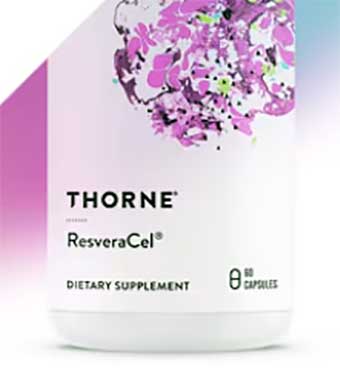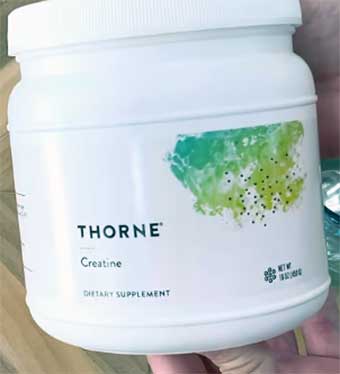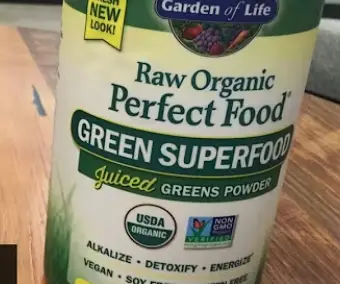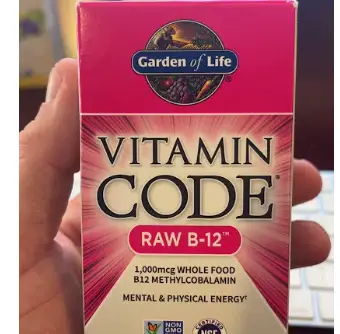I’ve been on a health kick for years, and choosing the right supplements is a big part of that. Thorne and Garden of Life caught my eye for their quality claims, but which is better? In this article, I’ll share my experience using both, breaking down their pros, cons, key features, and how they stack up. My goal is to help you decide which brand fits your wellness needs, with a conversational take on why I lean one way. If you’re torn between these two, you’ll want to read on!
Comparison Table: Thorne vs. Garden of Life
| Feature | Thorne | Garden of Life |
| Key Focus | Bioavailable, science-backed formulas | Organic, whole-food-based nutrients |
| Price Range | $20–$50 per bottle | $15–$40 per bottle |
| Certifications | NSF Certified for Sport, TGA | USDA Organic, Non-GMO Project |
| Vegan Options | Limited (some gelatin capsules) | Extensive (many vegan products) |
| Testing | Four rounds in-house, third-party | Third-party, less emphasis on sport |
| Availability | Mostly online, some clinics | Widely available in stores |
| Best For | Athletes, clinical precision | Organic enthusiasts, budget buyers |
| Flavors/Forms | Capsules, powders, limited flavors | Capsules, gummies, powders, sprays |
This table sums up the core differences, but let’s unpack my experience with each brand to see how they perform in real life.
My Journey with Thorne and Garden of Life

I started using supplements to fill gaps in my diet—energy slumps, brittle nails, and occasional joint aches were my cues. Thorne’s Basic Nutrients 2/Day and Garden of Life’s MyKind Organics Men’s Multi were my first picks, both promising comprehensive nutrition. I took Thorne’s two capsules daily with breakfast and Garden of Life’s two tablets with lunch for three months each. Thorne gave me steady energy and stronger nails, while Garden of Life felt gentler but less potent. Their approaches—Thorne’s clinical precision versus Garden’s whole-food vibe—shaped my experience, and I’ll break it down below.
Pros of Thorne Supplements
- High Bioavailability: Thorne uses active nutrient forms, like methylated B vitamins, for better absorption. I noticed steadier energy compared to other brands.
- NSF Certified for Sport: Many products are tested for banned substances, ideal for athletes. I trust it for my 5K races, knowing it’s clean.
- Rigorous Testing: Four rounds of in-house testing plus third-party verification ensure purity. I feel confident there’s no hidden junk.
- No Artificial Additives: Free of gluten, dairy, and synthetic fillers, it suits my sensitive stomach. I’ve had zero digestive issues with Thorne.
- Trusted by Pros: Partnerships with the NBA, NFL, and healthcare providers boost credibility. I respect their science-backed reputation.
- Compact Dosing: Two capsules deliver a full nutrient profile, unlike brands needing four. It’s perfect for my busy mornings.
- Energy Support: B vitamins and magnesium stabilize my energy, reducing midday crashes. I’m more productive on long workdays.
- Skin and Nail Benefits: Vitamins A, C, and zinc improved my skin clarity and nail strength. It’s a noticeable perk I love.
- Shelf-Stable Options: Many products, like their probiotics, don’t need refrigeration. I toss them in my gym bag without worry.
- At-Home Testing Kits: Thorne’s stress and health tests add a personalized touch. I haven’t tried them, but friends rave about the insights.
Thorne’s focus on bioavailability and testing makes it a powerhouse. The energy boost and clean formula keep it in my routine, especially for my active lifestyle.
Cons Of Thorne Supplements
- Premium Price: At $30–$50 per bottle, it’s pricier than most. I had to cut back on other expenses to fit it in my budget.
- Limited Vegan Options: Gelatin capsules exclude vegans, disappointing my plant-based sister. More vegan formulas would help.
- Occasional Taste Issues: Some capsules have a slight “egg-like” taste, as I’ve read online. It’s rare but annoying when it happens.
- Not Widely Available: Mostly online or through clinics, so I order ahead. Shipping delays can mess with my stock.
- No Iron in Some Multis: Basic Nutrients 2/Day lacks iron, a bummer for my low levels. I need a separate supplement.
- Slow Results: Took 3–4 weeks to feel benefits, which might frustrate quick-fix seekers. I had to stay patient.
- Large Capsules: The pills are bigger than some brands, tricky if you hate swallowing. I manage, but it’s a gripe.
- Not Organic: Unlike Garden of Life, Thorne doesn’t prioritize organic ingredients. My eco-conscious cousin prefers organic brands.
- Potential Interactions: High-potency nutrients may interact with meds, as my friend with thyroid issues learned. Doctor approval is key.
- Overhyped Hype: Some products, like creatine, seem overpriced compared to competitors. I question if the premium is always justified.
Thorne’s drawbacks, like price and availability, require planning, but the quality keeps me hooked. It’s not perfect, but it’s close for my needs.
Pros of Garden of Life Supplements
- USDA Organic: Most products are certified organic, appealing to my natural-leaning friends. I like knowing it’s free of synthetic pesticides.
- Whole-Food Based: Nutrients come from fruits and veggies, feeling “closer to nature.” It aligns with my clean-eating goals.
- Budget-Friendly: Priced at $15–$40, it’s easier on my wallet than Thorne. I can stock up without stress.
- Vegan-Friendly: Extensive vegan options, like MyKind Organics, suit my plant-based pals. It’s inclusive for all diets.
- Widely Available: Found at Whole Foods, Target, and pharmacies, it’s easy to grab. I never worry about running out.
- Variety of Forms: Offers gummies, sprays, and powders alongside capsules. I tried their vitamin C spray for a fun change.
- Non-GMO Certified: Verified by the Non-GMO Project, it reassures me about ingredient purity. I value the transparency.
- Gentle on Stomach: The whole-food formula is easy to digest, even on an empty stomach. I’ve had no bloating or discomfort.
- Tasty Options: Gummies and flavored powders, like their greens, are kid-friendly. My niece loves their vitamin D gummies.
- Sports Supplements: Their Sport Protein Powder is third-party tested, a plus for my gym buddy. It mixes well in smoothies.
Garden of Life’s organic focus and accessibility make it a solid choice. The variety and gentle formula are great for casual supplement users.
Cons Of Garden Of Life Supplements

- Nestlé Ownership: Bought by Nestlé, which raises quality concerns for some, including me. I wonder if standards have slipped.
- Lower Bioavailability: Whole-food nutrients may absorb less efficiently than Thorne’s active forms. I felt less energy impact.
- Inconsistent Quality: Some batches, like my recent multivitamin, seemed less potent. Online reviews echo my doubts.
- Large Pill Count: Some products require 3–4 tablets daily, which feels excessive. I prefer Thorne’s two-capsule simplicity.
- Side Effects Reported: A few users, including my cousin, had mild nausea with their greens powder. It’s not universal but worth noting.
- Less Rigorous Testing: Third-party testing exists, but it’s less emphasized than Thorne’s four-round process. I question its thoroughness.
- Heavy Metal Concerns: Past reports flagged their protein powders for contaminants, which spooked me. I stick to their multis for safety.
- Complex Ingredient Lists: Some products have long herb blends, risking interactions. I check labels carefully with my meds.
- Not NSF Certified: Lacks NSF for Sport certification, so athletes like me are wary. I’d trust it less for competitions.
- Slower Results: Took 4–6 weeks to notice skin or energy changes, longer than Thorne. Patience is a must here.
Garden of Life’s affordability and organic appeal are great, but Nestlé’s ownership and quality concerns make me hesitant. It’s good but not flawless.
Also read:My Final Thoughts Thorne Vs. Klean Creatine
Key Features Of Thorne Supplements
- Bioavailable Nutrients: Uses forms like methylfolate and chelated minerals for optimal absorption. I feel the difference in energy and focus.
- NSF Certification: Over 30 products are NSF Certified for Sport, ensuring no banned substances. I rely on this for race compliance.
- Four-Round Testing: Tests raw materials, production, and finished products for purity and potency. I trust what’s in the bottle.
- No Fillers: Free of gluten, soy, and artificial preservatives, minimizing reactions. My sensitive stomach thanks them.
- Healthcare Partnerships: Used by doctors and sports teams, adding credibility. I value their professional endorsements.
- Minimal Dosing: Delivers robust nutrition in 1–2 capsules or scoops, streamlining my routine. I hate juggling multiple pills.
- At-Home Tests: Offers stress and nutrient tests for personalized health insights. I’m tempted to try their cortisol test.
- Shelf-Stable Formulas: Many products, like probiotics, are travel-friendly without refrigeration. I take them on work trips easily.
Thorne’s clinical-grade features, like bioavailability and testing, make it ideal for those seeking precision and trust in their supplements.
Key Features Of Garden Of Life Supplements

- Organic Ingredients: Sourced from whole foods and USDA Organic certified, appealing to naturalists. I like the “food-first” vibe.
- Vegan-Friendly: Extensive plant-based options, from multis to proteins, cater to all diets. My vegan friend swears by their B12 spray.
- Non-GMO Verified: Ensures no genetically modified ingredients, boosting purity. I check labels for this seal.
- Diverse Forms: Includes gummies, sprays, and powders for flexibility. Their vitamin C gummies are a tasty treat.
- Third-Party Testing: Products are tested for contaminants, though less emphasized than Thorne. I feel decently confident in safety.
- Widely Accessible: Available at major retailers, making restocking easy. I grab it at Target during errands.
- Sports Nutrition: Offers tested protein powders and greens for athletes. My gym buddy blends their Sport Protein daily.
- Kid-Friendly Options: Gummies and chewables appeal to families. My niece takes their kids’ multi without fuss.
Garden of Life’s organic, accessible products suit budget-conscious or vegan users, but their testing feels less robust than Thorne’s.
Thorne Vs. Garden Of Life: Head-To-Head Comparison
Nutrient Quality and Absorption
Thorne’s bioavailable forms, like methylated B vitamins, absorb efficiently, giving me quicker energy and nail strength. Garden of Life’s whole-food nutrients feel natural but may absorb less effectively, as I noticed slower results. Thorne wins for potency, but Garden’s organic sourcing appeals to purists.
Price and Value
Thorne’s $30–$50 price tag reflects its premium ingredients and testing, but it’s a stretch for my budget. Garden of Life’s $15–$40 range is more affordable, especially for organic products. If cost is key, Garden’s value shines, but Thorne’s quality justifies the splurge for me.
Certifications and Testing
Thorne’s NSF Certified for Sport and four-round testing set a high bar, reassuring me for athletic use. Garden of Life’s USDA Organic and Non-GMO certifications are solid but lack sport-specific rigor. Thorne’s testing feels more thorough, though Garden’s transparency is decent.
Accessibility and Convenience
Garden of Life is everywhere—Target, Whole Foods, you name it—making it a breeze to restock. Thorne’s mostly online, so I plan orders carefully to avoid gaps. Garden wins for convenience, but Thorne’s quality makes the extra effort worthwhile for me.
Dietary Inclusivity
Garden of Life’s vegan-friendly lineup, like MyKind Organics, caters to plant-based diets, which my sister loves. Thorne’s gelatin capsules limit vegan options, though some powders are vegan. Garden’s inclusivity is a big plus for diverse diets.
Effectiveness and Results
Thorne’s high-potency formulas gave me energy and skin benefits in 3–4 weeks, while Garden of Life took 4–6 weeks for milder effects. Thorne’s faster, stronger results suit my active life, but Garden’s gentle approach might appeal to casual users.
Taste and Form Variety
Garden of Life offers gummies, sprays, and flavored powders, adding fun to my routine. Thorne sticks to capsules and limited powder flavors, which are fine but less exciting. Garden’s variety wins for picky eaters or kids.
Brand Trust and Reputation
Thorne’s partnerships with sports teams and doctors, plus NSF certification, build trust, especially after Nestlé bought Garden of Life, raising quality doubts. I lean toward Thorne for reliability, though Garden’s organic roots still have fans.
Also read:My Final Thoughts Cymbiotika Metabolic Health
My Take: Which Brand Wins?

After months with both, I prefer Thorne for its bioavailability, testing, and noticeable results—energy, nails, and skin all improved faster. It’s pricier and harder to find, but the quality feels unmatched for my active lifestyle and occasional races. Garden of Life is great for budget-conscious or vegan folks, with its organic, accessible products, but Nestlé’s ownership and slower results give me pause. If you prioritize clinical precision and don’t mind the cost, Thorne’s your pick. If organic, affordable, and vegan matter more, Garden of Life fits the bill.
Addressing Common Concerns
Thorne’s price and limited vegan options are hurdles, but the NSF certification and testing ease my safety worries. Garden of Life’s Nestlé link sparks skepticism, and past heavy metal reports in their proteins made me cautious, though their multis seem safer. Both brands have side effects like mild nausea if overdosed, so I stick to recommended doses. Thorne’s faster results suit my impatience, but Garden’s gentle formula is great for sensitive stomachs. Always check with a doctor, especially if you’re on meds, to avoid interactions.
The Value Proposition
Is Thorne worth the premium? For me, yes—its potency and testing deliver results I feel, from energy to recovery. Garden of Life’s affordability and organic appeal are tempting, especially for casual users or vegans, but I question its consistency post-Nestlé. Thorne’s like a high-end gym membership—costly but effective if you use it right. Garden’s more like a budget gym: accessible and solid but less intense. Your choice depends on your budget, diet, and health goals, but I’m Team Thorne for now.
Frequently Asked Questions
Yes, Thorne’s bioavailable nutrients and four-round testing ensure top-tier quality, as I’ve seen with my energy and nail strength.
Thorne leads for bioavailability and testing, though Garden of Life’s organic focus is great for naturalists. It depends on your needs.
Absolutely, their NSF certification, third-party testing, and professional endorsements make them reliable, giving me peace of mind.
Conclusion
Thorne and Garden of Life both offer quality supplements, but Thorne’s my go-to for its potency and testing, and you should consider it if you value results.
I’ve shared my experience, pros, cons, and comparisons to help you pick. Garden’s organic, vegan-friendly vibe is great for budget shoppers, but Thorne’s precision wins for me.
Whether you’re an athlete or just boosting wellness, I hope this guides you to the brand that fits your life. Let’s keep chasing health together!
